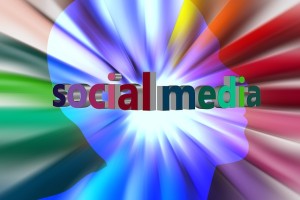Who remembers MSN? Four predictions for the future of social media
 We’ve come a long way since MSN messenger. Who remembers antagonising their mum by hogging the internet? Rendering the landline useless and delaying that all important phone call?
We’ve come a long way since MSN messenger. Who remembers antagonising their mum by hogging the internet? Rendering the landline useless and delaying that all important phone call?
In 2004, Mark Zuckerberg launched Facebook, the internet phenomenon that heralded the age of social media. Fast forward to the present day and there are currently 1.3billion active users on Facebook, with this number set to rise with the world’s population.
The future of social media spurs a string of hypothetical debates the length of my Twitter feed. Here are my top four predictions:
- Platforms will diversify and specialise. In a similar way to which Facebook has pages dedicated to particular subjects, smaller specialised platforms will spring up and attract users through exclusivity, which is good news for B2B marketers. Imagine a platform populated purely by Viz fanatics and devoted to the publication’s survival. Dedicated platforms will allow users to post outrageous Viz excerpts without fear of being blackballed by their intelligent, Economist reading peers.
- Social media will not only be ubiquitous, but integrated into our lives in ways we cannot yet imagine. Smart technology will connect everything we use regularly to social platforms, and like it or lump it each click will be logged. Apps already track how quickly or sluggishly we run, and this kind of surveillance will continue. As a result, even more data will be gathered in the future and highly personalised content will become expected. When brands get this wrong they’ll be ostracised by the consumers they’ve inaccurately pigeonholed – it still puzzles me that Graze think I’m healthy. When marketers have the ability to make calculated decisions based on astronomical amounts of data, an intensely personal, and consequently powerful user experience will be born.
- Developments in broadband speed and bandwidth will enable video and music to be consumed seamlessly on the move. This evolution will allow users to post snippets of video with the same gusto as selfies and static adverts will seem incredibly antiquated and boring – it doesn’t even move!
- Social media will transform all aspects of business, from marketing to customer services. S-commerce created a buzz last year as Facebook and Twitter tested buttons that enabled users to make purchases through the platform. S-commerce will eventually succeed and benefit customers through highly targeted offers and businesses through the creation of comprehensive customer profiles. Eventually C-level employees will wake up to the power of social media, not only as an invaluable form of inbound marketing, but also as a cost effective way to conduct customer services. As advertising through social media becomes a larger part of overall advertising budgets, more money will be pumped into establishing the ROI of social media, in terms of £ rather than likes.
In the future, there’ll be a wider variety of social media platforms as the market segments. Currently users easily transverse the big three platforms, Facebook, Twitter and LinkedIn, but these platforms will lose favour as people crave content they’re actually interested in. Let’s face it, nobody really cares about your kids, let alone your cats. Greater platform diversity will also make it easier for companies to reach and engage with their target markets. Social media’s importance as a method of communication and advertising will revolutionise society. The revolution will not be televised, but the revolution will be tweeted.